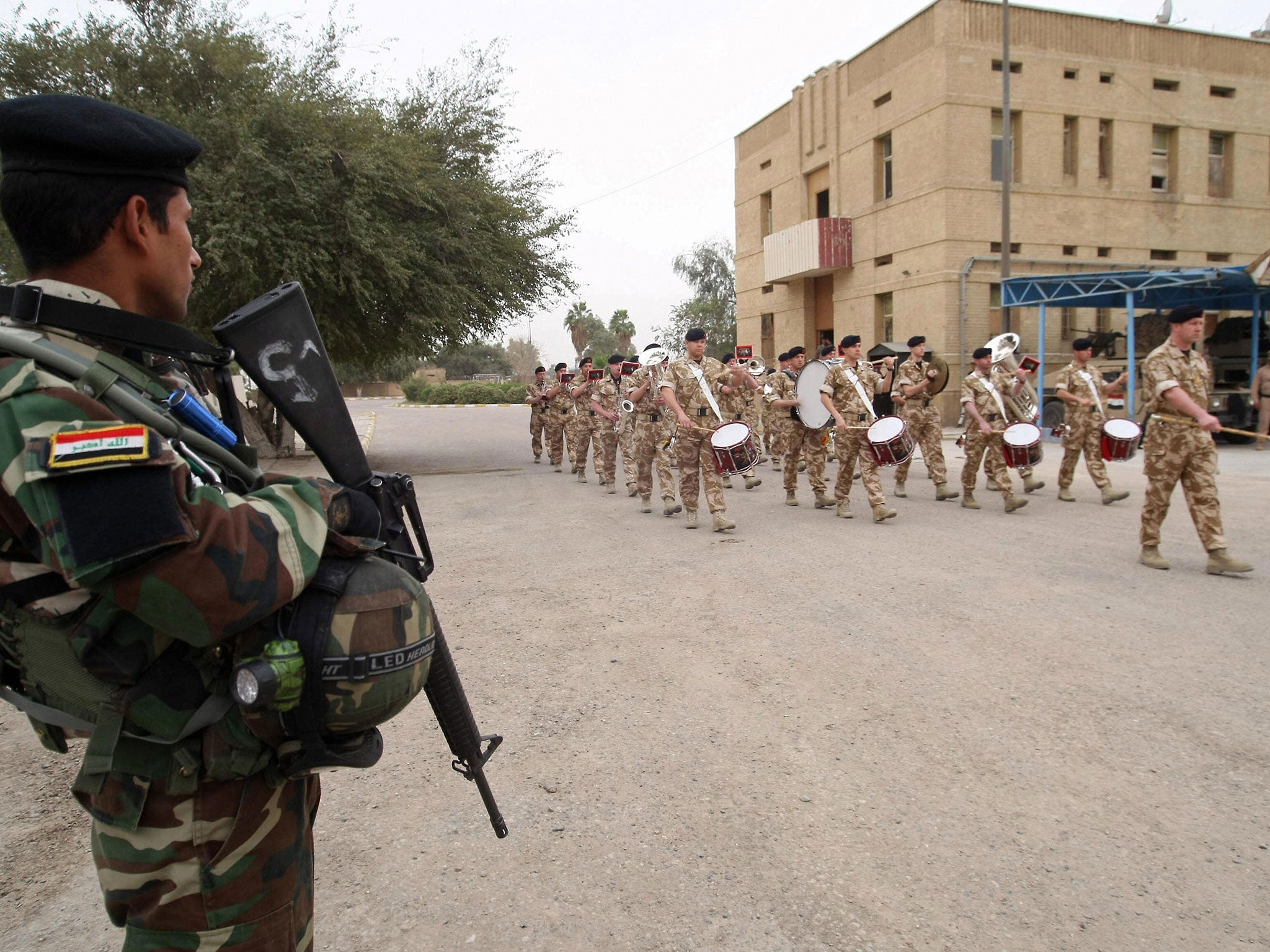Chilcot report: Troops were sent into Iraq under-equipped and military was 'humiliated' by local militias
Damning assessment will vindicate the longstanding criticisms made by families of soldiers who died in the conflict

Britain’s troops were sent to war in Iraq under-prepared and with “serious equipment shortfalls” and the military involvement in Basra ended with a “humiliating” bargain with local militias not to target its forces, according to the Chilcot.
The full scope of Britain’s contribution was only settled in mid-January 2003, weeks before the invasion, leaving barely any time to prepare three brigades for their combat roles. The extent of the risks were “neither properly identified nor fully exposed to ministers”, Sir John Chilcot said in a damning assessment which will vindicate the long-standing criticisms by families of service personnel who were killed in Iraq.
So rapid was the deployment and so under-prepared were the Armed Forces that initially there was even a shortage of desert uniforms and boots.
Major General Graham Binns, a commander in Basra, told the Inquiry: “There were soldiers who didn’t have desert combats, you know, we were asking them to go to war incorrectly dressed.”
Over-stretched by twin campaigns in Iraq and Afghanistan, British forces in the south of Iraq, centred on Basra, faced a rapidly deteriorating security situation after the invasion with equipment gaps in key areas, particularly helicopters, and equipment for surveillance and intelligence gathering, the report found.
The Ministry of Defence, meanwhile, was slow to respond to the threat posed by improvised explosive devices (IEDs), which took a heavy toll on British forces. There was a failure to provide sufficient numbers of patrol vehicles equipped with extra protection that “should not have been tolerated”, the report said.
Meanwhile, British troops posted in Basra were given no “rules of engagement” if faced with lawlessness. When just such a situation took hold in the city, with widespread looting and hostility to UK troops, commanders on the ground were left to make their own judgements.
One ground commander told the Inquiry that he concluded “the best way to stop looting was just to get to a point where there was nothing left to loot”.
Speaking at the report’s publication in London, Sir John said: “By 2007, militia dominance in Basra, which UK military commanders were unable to challenge, led to the UK exchanging detainee releases for an end to the targeting of its forces.
“It was humiliating that the UK reached a position in which an agreement with a militia group which had been actively targeting UK forces was considered the best option available. The UK military role in Iraq ended a very long way from success.”
The report praised the “great courage” of the British service personnel and civilians deployed in Iraq, as well as the Iraqi citizens who supported them. A total of 179 British military personnel died during the conflict and thousands more were injured.
Effective military planning was also hampered by “over-optimistic assessments” of the situation on the ground.
“Senior decision‑makers – Ministers, Chiefs of Staff, senior officials – must have a flow of accurate and frank reporting. A ‘can do’ attitude is laudably ingrained in the UK Armed Forces – a determination to get on with the job, however difficult the circumstances – but this can prevent ground truth from reaching senior ears,” the report concluded.
“At times in Iraq, the bearers of bad tidings were not heard. On several occasions, decision‑makers visiting Iraq (including the Prime Minister, the Foreign Secretary and the Chief of the General Staff) found the situation on the ground to be much worse than had been reported to them.”
The report found that the military option of sending in ground troops, in a southern invasion that would see British forces taking responsibility for four provinces, was agreed “without a formal ministerial decision and without ensuring that [the UK] had the necessary military and civilian capabilities to discharge its obligations, crucially to provide security”.
Sir John concluded: “The scale of the UK effort in post-conflict Iraq never matched the scale of the challenge. Whitehall departments and their Ministers failed to put collective weight behind the task. In practice, the UK’s most consistent strategic objective in relation to Iraq was to reduce the level of its deployed forces.”
Join our commenting forum
Join thought-provoking conversations, follow other Independent readers and see their replies
Comments
Bookmark popover
Removed from bookmarks